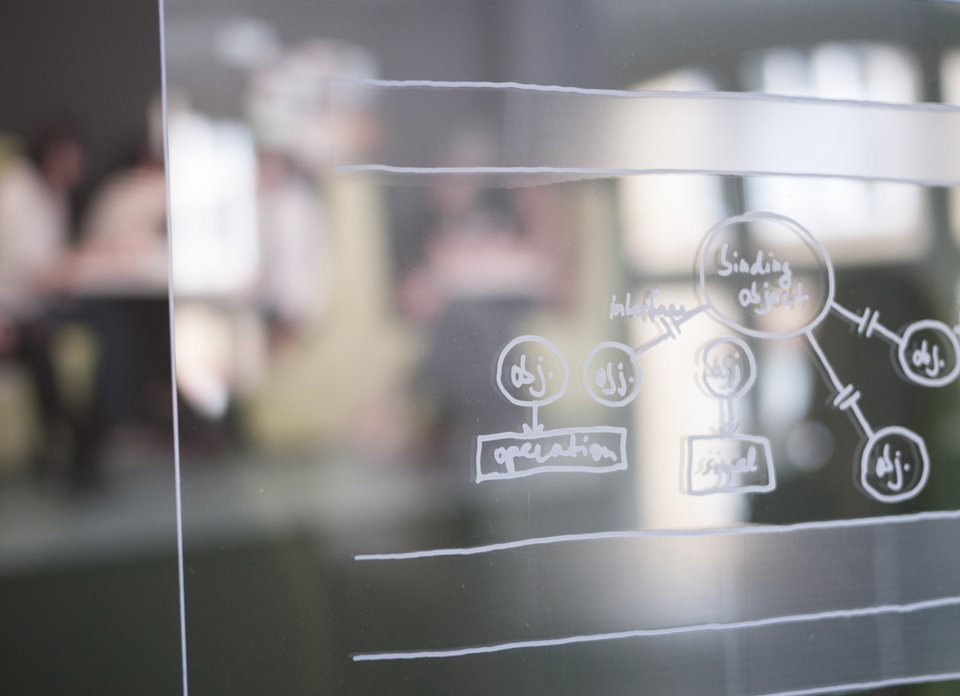
Experiment & Observation
Research topic
The base project »Experiment & Observation« is central to the cluster’s self-observation of its own research activities. We will draw on the disciplines of psychology, ethnology, sociology, computer science, and theater studies for comparative observation methods and analysis of the cluster’s research processes. We will also introduce experimental arrangements that will enable us to study behavioral patterns shaped by disciplinary standards and to relate them to one another in the Interdisciplinary Laboratory. Thus, we will gain a more precise insight into how the »trading zone« (Galison 1997) of the Interdisciplinary Laboratory contributes to the intersection of different viewpoints, styles of reasoning, and forms of work, as researchers might obstruct one another or come together in productive complementarity. Specifically, we will study two exemplary issues: what is each discipline’s viewpoint of what an experiment is supposed to be; and how are scientific diagrams and illustrations used to meet the needs of interdisciplinary exchange?
The researchers participating in the base project will use their own perceptions when examining these questions. Psychologists will perform an experimental study with controlled interventions to compare eye motion data as test subjects from various disciplines look at scientific diagrams. Ethnologists will observe the different forms of experimenting used in the Interdisciplinary Laboratory, the ways the researchers themselves become objects of (psychological, etc.) experimenting, and the extent to which scientific diagrams play a role as mediators in this context. Theater scholars will look at experiments and diagrams and will focus on the significance of performative acts as the “stages of knowledge” (Schramm 2003) required for new knowledge to be generated and accepted. The guiding question is how new forms of evidence and verification are generated in the cluster when procedures and problems are transposed from one disciplinary culture to another domain. Business IT specialists will analyze the workflows and organizational forms that result from experimental arrangements, diagrams, and models as agents, and they will interconnect the various observers’ perspectives as different perceptions of one model. Sociologists finally analyze the way in which communication mediated by psychological processes and embedded in particular cultural forms organize themselves in ongoing social interactions and through their corresponding images. These images do not only reduce complexity for those involved in situations of knowledge generation, but constitute the world in which social actors are enabled to observe each other. This happens equally in real laboratories (Knorr-Cetina) as in virtual laboratories (Latour). Observing these observers provides a way for explaining the dynamics of the modern production of knowledge.
Objectives
Working experimentally, we aim to reveal discipline-specific behavioral and perceptual patterns and mindsets in the use of experiments and scientific diagrams and to analyze their advantages and disadvantages for specific work processes. This will enable the design of new forms of interaction that may subsequently be implemented in the cluster. To this end, we will study research processes in other base projects. This project intends to improve and standardize scientific illustrations by means of a critical comparison of the conventions used in the various disciplines.
Securing the results
We will collate the results derived from the different forms of empirical observation used by the participating researchers. Examining the different observational procedures and experiments will provide new insight into interdisciplinary work as a model and how its various forms can be conceptualized; these results will also be related back to the cluster to enable reconfiguration of the work processes of the Interdisciplinary Laboratory.

